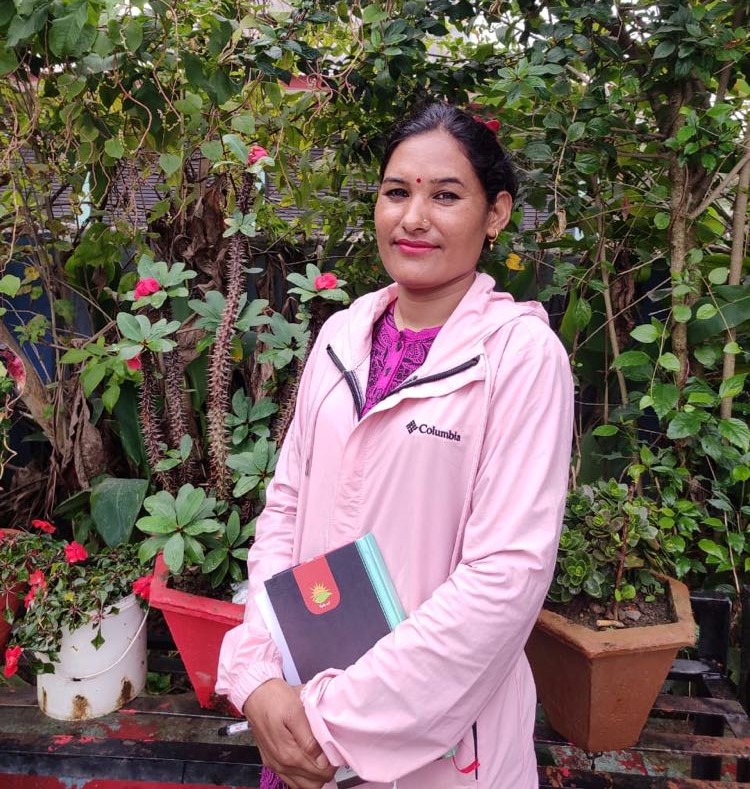
Laxmi Karki has been working as a safe house in-charge at the safe house in Jumla for the last nine years, where she is actively involved in providing services and support to survivors of Gender-Based Violence (GBV). Talking about her almost a decade-long journey as a social activist, Laxmi reminisces how time and her experience of working for women's rights have changed her as a person.
"In 2009, Chandannath Municipality in Jumla took initiation and opened a safe house to support GBV survivors. Before establishing the safe house, although people knew about GBV cases in the community, they didn't dare to talk openly about it. GBV issues were considered taboo, and due to the lack of support mechanisms, GBV survivors would suffer in silence.
After three years of its establishment, I was involved with a safe house in 2012. Initially, I started working at a safe house as a volunteer. But after some time, the municipality began to pay us a small allowance. Gradually, I was appointed as a safe house in charge. This responsibility made me realize how important my role is in helping and supporting survivors of GBV in my community.
My commitment towards my work evolved further when WOREC and UNFPA jointly started working with us in October 2020. I now feel that my work is being more valued and contributing something important to society. WOREC and UNFPA also provided me opportunities to participate in different training, interaction programs, and meetings with different stakeholders. All of these exposures have helped me to hone my skills and capacities. Likewise, in recent times, coordination with different stakeholders and local government has also strengthened, which has helped us run the safe house smoothly. I also feel that the monetary aspect of the program has not only added value to my work but has also helped me and my family sustain financially. Since the municipality's allowance was little, it was difficult for me even to have a proper cup of tea in the earlier days. However, now, I can even contribute to my household expenses.
The intervention of WOREC and UNFPA has supported me personally and has brought positive changes in the safe house. Although the safe house has been operating for more than a decade, due to the lack of exposure to the staff members, we were constantly facing difficulties in managing the safe house in a systemic and organized way. However, now, the safe house is well managed as various systematic procedures like proper data handling, case documentation, and survivor-centric approaches are introduced. These changes have made the team realize the impact of their work, about proper work processes, and have also increased work efficiency. The staff and the facilities of the safe house are now well managed, due to which the services are being provided to the survivors more effectively, and the survivors are at ease.
I feel that the continuous support from WOREC and UNFPA has made my and my team's work more accessible as I can reach out to WOREC and UNFPA for any needed assistance in our journey to fighting against GBV issues."